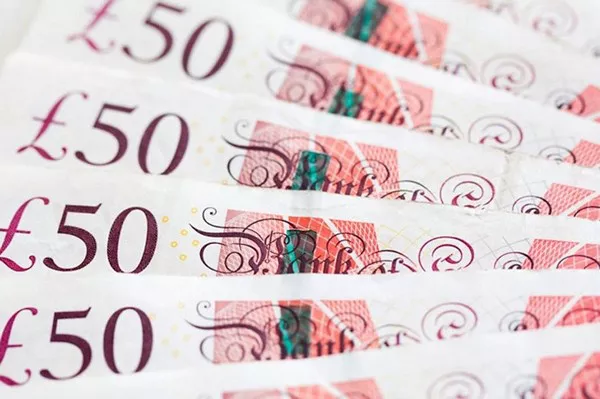The Bank of England, often referred to simply as the BoE, is the central bank of the United Kingdom. Established more than three centuries ago, in 1694, it holds a pivotal role in shaping the nation’s monetary and financial stability. Its actions and decisions significantly impact the British pound (GBP) and, by extension, the entire UK economy. In this comprehensive article, we will delve into the functions and responsibilities of the Bank of England and explore the intricate relationship between the central bank and the value of the pound.
The Bank of England’s Mandate
The Bank of England’s primary mandate is to maintain monetary stability in the UK. Achieving this mandate involves two core objectives:
Price Stability: The central aim of the BoE is to ensure that inflation remains low and stable. Inflation refers to the rate at which the general price level of goods and services in an economy rises, resulting in a decrease in the purchasing power of a currency. The BoE’s target for inflation is 2%, meaning it aims to keep the annual inflation rate at or around 2%.
Supporting Economic Growth and Employment: While price stability is paramount, the Bank of England also recognizes the importance of fostering economic growth and employment. It strives to support these objectives while keeping inflation in check.
To achieve its mandate, the BoE deploys a range of tools and strategies, including setting interest rates, managing the money supply, and employing unconventional measures when necessary.
The Bank of England’s Key Functions
Monetary Policy: The Bank’s most visible and impactful function is the formulation and implementation of monetary policy. Central to this is the setting of the Bank Rate, also known as the base rate. The Bank Rate is the interest rate at which commercial banks can borrow money from the BoE. By altering this rate, the central bank influences the cost of borrowing and lending throughout the economy.
When the BoE raises the Bank Rate, it becomes more expensive for banks to borrow funds. This cost is often passed on to consumers and businesses through higher interest rates on loans, mortgages, and credit cards. As a result, borrowing becomes less attractive, leading to reduced spending and investment. This, in turn, can help curb inflation but may also slow economic growth.
Conversely, lowering the Bank Rate encourages borrowing and spending, which can stimulate economic activity but may lead to higher inflation if unchecked.
Currency Issuance: As the issuer of banknotes in England and Wales, the Bank of England is responsible for producing and distributing physical currency. This function includes maintaining the integrity and security of banknotes, replacing damaged or outdated notes, and ensuring an adequate supply of cash in circulation.
Financial Stability: The BoE plays a crucial role in safeguarding the stability of the UK’s financial system. This involves monitoring and assessing risks within the financial sector, setting regulatory and prudential standards for banks and financial institutions, and intervening if necessary to prevent or mitigate systemic financial crises.
Banker to the Government: The Bank of England acts as the government’s banker and provides essential banking services, including managing the government’s accounts, facilitating payments, and supporting debt issuance.
Reserve Management: The BoE manages the UK’s official foreign exchange reserves, ensuring that the country holds an appropriate mix of foreign currencies to support international trade and economic stability.
The Impact on the Pound
The Bank of England’s actions and decisions have a profound impact on the value of the British pound. Here’s how:
Interest Rates: As mentioned earlier, changes in the Bank Rate directly affect borrowing costs. When the BoE raises interest rates to combat inflation, the pound often strengthens as higher rates make UK assets more attractive to investors seeking higher returns. Conversely, lower interest rates can weaken the pound as they reduce the yield on UK investments.
Inflation Expectations: The central bank’s commitment to maintaining price stability influences public expectations about future inflation. If the BoE is seen as credible in its efforts to control inflation, businesses and consumers are more likely to anticipate stable prices. This, in turn, can lead to increased confidence in the pound.
Economic Outlook: The Bank of England’s assessment of the UK economy and its growth prospects is closely watched by investors. Statements from the BoE, particularly regarding future monetary policy decisions, can significantly impact currency markets. Positive economic outlooks and signals of potential interest rate hikes can drive demand for the pound.
Financial Stability: The BoE’s role in ensuring financial stability indirectly affects the pound. A stable financial system fosters investor confidence and attracts foreign investment, bolstering the currency.
Brexit and External Factors: The Bank of England has played a pivotal role in addressing the economic challenges posed by Brexit. Its policies and interventions during this period have had a direct bearing on the pound’s value. Additionally, external factors such as global economic conditions and geopolitical events can influence the pound independently but may also prompt responses from the BoE.
In conclusion, the Bank of England serves as the custodian of monetary stability in the UK. Its policies, decisions, and communication directly impact the pound’s value and, consequently, the broader economic landscape. Investors, businesses, and policymakers closely monitor the central bank’s actions and statements, recognizing the significant role it plays in shaping the British economy. As such, the Bank of England remains a cornerstone institution in the world of finance, with its influence extending well beyond the borders of the United Kingdom.


